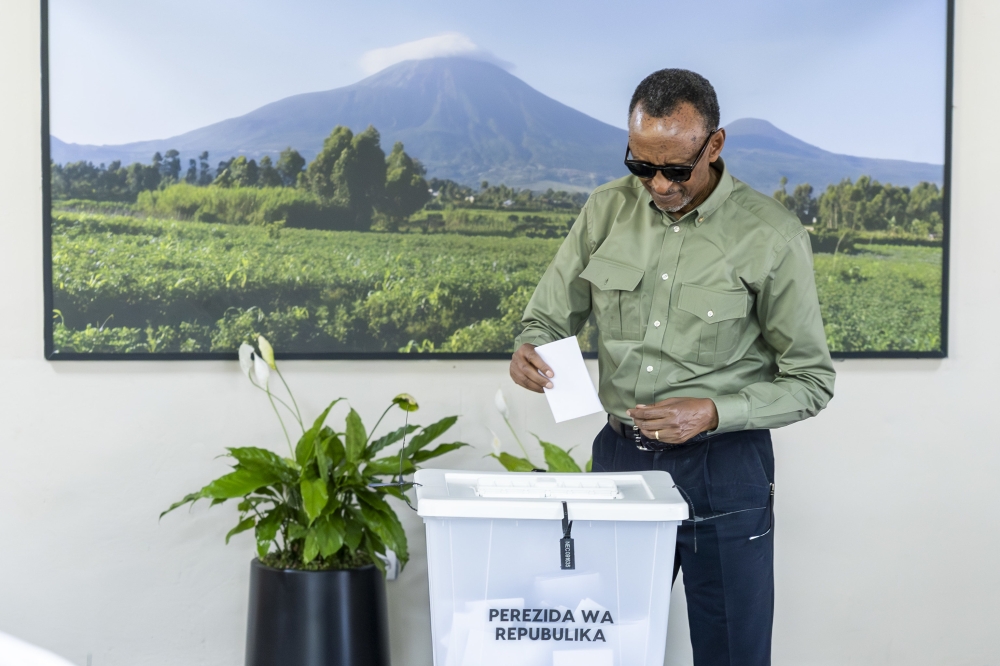

On Sunday, August 11th, millions of Rwandans, both within and outside the country, will witness the inauguration ceremony of our newly re-elected head of state, Paul Kagame.
At Amahoro Stadium, that day will be heads of state, friends of Rwanda, diplomatic representatives, notable guests, and tens of thousands of ordinary Rwandans, all gathered to witness the official beginning of President Kagame’s new mandate.
Fingers crossed, I’ll be there as well, but if not, I’ll be sitting at home with my young children, attentively following the proceedings. More than the marching, singing, dancing, and presidential motorcades, I will be listening intently to President Kagame’s inaugural address.
I’m not suggesting that I didn’t pay attention to his previous speeches; rather, I believe this new five-year term is special.
I feel confident in saying that Rwanda, as a nation, is on the cusp of something extraordinary—something our forefathers could never have imagined. Let me explain. Like building a house from scratch, nation-building is an arduous endeavor and not for the faint-hearted.
Before you even start building, you have to secure a plot, work with designers and architects to figure out what you are trying to build, and obtain a building permit—all before you start digging a foundation. I see nation-building in the same way.
To have a viable state, you need a secure country where the citizenry has some sort of consensus on what the state should look like and how it ought to relate to them. Unfortunately, more than one African state has failed at this initial stage.
Rwanda was once one of these countries. From 1959 to 1994, Rwanda was unsafe for its own citizens. There were hundreds of thousands in exile, and inside the country even more lived as second-class citizens.
During that time, calling Rwanda ‘secure’ would have been a joke; in just 35 years, Rwandans suffered through a coup d’état, a civil war, and a genocide.
The fabric of Rwanda was so torn that many suggested the country be split in two.
The only thing that kept Rwanda from becoming a failed state was the RPF’s victory in July 1994.
Through force of arms, they secured the country, refused to accept the idea that Rwandans could not live together as they once did, and worked with all sections of Rwandan society through dialogue to create a new national modus operandi, such as the 2003 Constitution (which established and guaranteed the fundamental rights of Rwandans) and Vision 2020 (the development blueprint that gave focus and direction to our national aspirations).
Once the country was secured and the citizens agreed on a way forward, the next phase in nation-building began: the creation of state institutions and the building of basic state infrastructure.
I believe this phase is what Rwanda has been going through for the last 20 years. We’ve been building state institutions like the Rwanda Development Board, Rwanda Energy Group, University of Rwanda, Office of the Prime Minister, Rwanda Mining, Gas and Petroleum Board, Auditor General’s Office, Rwanda National Police, Rwanda Forensics Institute, and many more.
Alongside these institutions, significant state resources have been used to build basic infrastructure like power plants, roads, hospitals, schools, fiber optic cables, and the like.
What I now predict is that in the next five years, we will see these efforts bear fruit in transformative ways. For example, for the first time ever, people living in Ngoma (formerly Kibungo) will soon be able to travel to Bugesera without passing through Kigali, thanks to the Kibungo-Ramiro highway.
Because of that single piece of road infrastructure, hundreds of thousands of lives will be changed in far-flung places like Sake, Gashora, Rukumberi, and Zaza as water bodies like Lake Mugesera, Lake Mumira and Lake Mirayi suddenly open up to tourism.
This increased ease of movement will foster tourism along the entire geographical corridor. I wouldn’t be surprised if this visually stunning area becomes a new tourism hotspot, a sort of ‘Musanze of the South,’ especially with the completion of the Bugesera International Airport.
That’s the thing with nation-building: if you do the foundational work properly, the later stages almost follow naturally.
If a country is safe and stable, if state institutions function effectively, and if basic infrastructure is in place, private investment from both within and outside the country inevitably follows.
In the next five years, we will begin to see and feel the impact of patient private investment in an economy that works. It’s going to be astonishing. I can’t wait.
The author is a socio-political commentator


